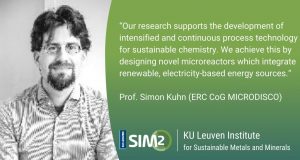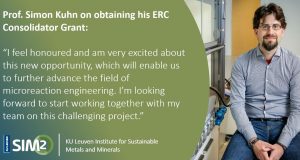11 February! Today we celebrate the International Day of Women and Girls in Science, declared by the United Nations (resolution A/RES/70/212), as a way to achieve gender equality and empowerment of women and girls in science. UN Secretary-General, António Guterres, said “We need to encourage and support girls and women achieve their full potential as scientific researchers and innovators.”

From the COSMIC team, women fellows were inspired to share why they decided to follow a career in science. Different reasons going from childhood dreams until passion and challenges were expressed. Each one of them highlighted one quality of a woman in science. Let’s read what those 6 young women researchers have to tell us.
Ana Luisa Maria is a Portuguese ERS (early stage researcher) working on organic chemistry. She found her inspiration to work in science since she was child, through perfumes and creams. “When I was child I loved to mix perfumes and creams to get the most appealing fragrance. Even when the result was not the most pleasant smell (sometimes at all), the feeling for the discover of new things was always present in my life”, said. The possibility of being the first person to discover a new thing, even the smallest one, it is her driving force. She claim that 100% passion is the most important quality of a woman in science, “no matter the hormones level!”.
Busra Ekim Sarac is a Turkish ESR who combines physics knowledge and applied materials and processing in her work. She wants to make the world better as a scientist. “There were ~107 billion people lived and ~7.5 billion people are living now on the ~4.5 billion years-old earth. Today’s technology in all areas you can imagine have been achieving and improving by the human being step by step. Each step is surpassed by the special people who are called as scientists!”. When she was asked for a quality, “Determination!” exclaimed her. “They always focus on what they want and run after their dreams.”
Roberta Manno is an Italian ESR working on flow chemistry, microwaves and nanoparticles. For her, science is passion! “Struggle each time to solve a new problem, increasing step by step the difficulty, is like energy for me”. For her there is no competition with male gender. She expressed “Collaboration, curiosity and willpower are the keys to demonstrate your qualities in science”. She admires the Nobel Prize Rita Levi Montalcini who says “Above all, do not fear difficult moments. The best comes from them”. Women have always demonstrated their strength, inside and outside the home.
Heidy Ramirez is a Colombian ESR interested in zeolite synthesis combined with ultrasound and microwaves. For her a career in science is a challenge against the social paradigms imposed by the society. “We women are strong!”, said. She has the strong conviction that women have the potential for setting and balancing priorities and achieving many beautiful life goals simultaneously. “We can have beautiful and happy families while pursuing other big dreams”.
Claire Delacour is a French researcher working on Microreactors combined with ultrasound. She has been involved in science as a way to express herself and her personality. Science allows her to develop qualities like curiosity and her interest by challenges. “It is a way for me to share with others my own vision of the world”, expressed. For her, a woman in science should be realistic and humanistic.
Maria Jesus Moran Plata is a Spanish Chemist working on non-conventional methodologies in organic synthesis. She ensures that scientists are usually associated with magicians, on the sense to discover and/or create such things that other people cannot. “It has always been really attractive for me!”.
Our 6 young researchers are one of the infinitive examples of women working in science, technology, engineering and math (STEM) in all over the world. From 6 different nationalities, even different continents, all of them are pursuing a common goal: Highlight the role of the women to make a better world through their own career in science.





One comment
Pingback: Time to Celebrate Women in Science! - SIM² KU Leuven